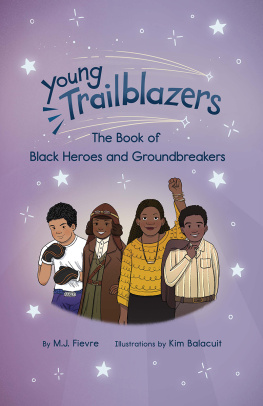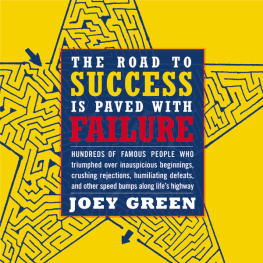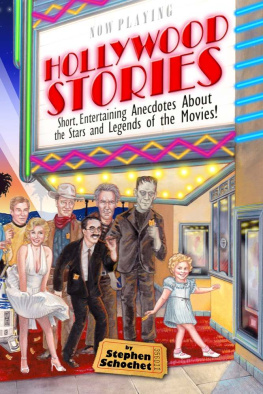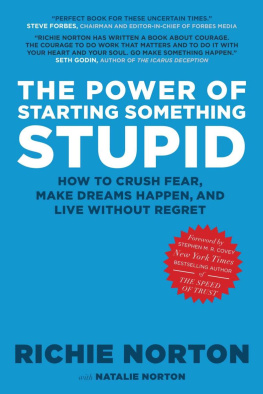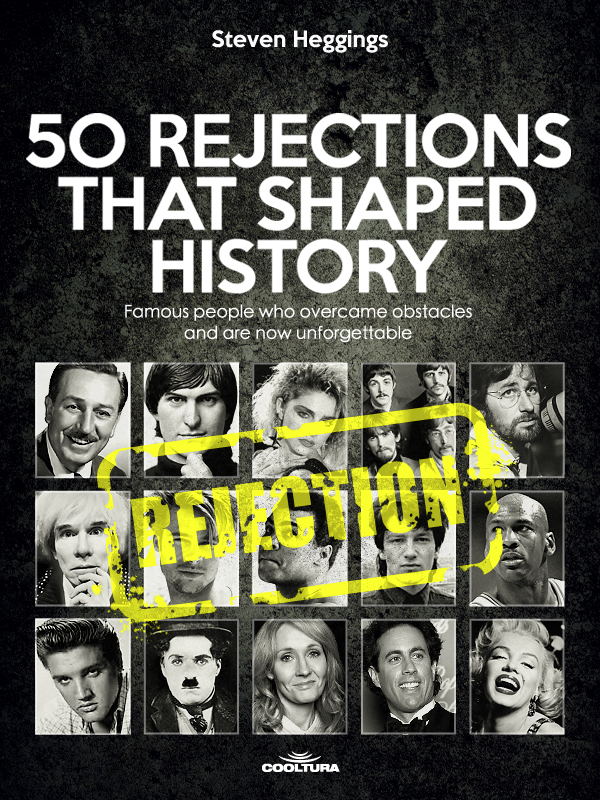Introduction
I have not failed, said the famous Thomas Edison, Its just that I have found 10.000 solutions which do not work. This elegant paradox by the famous inventor, who was initially scorned, introduces us to the feared phenomenon of rejection. For many people this is a requirement of subsequent recognition, even if posthumous.
People can be harsh judges, especially when they havent created anything. They admire today what they once rejected. They reject today what they will admire tomorrow. Their nave and often arrogant view of the world overshadows the obvious notion that all famous personalities started as ordinary people.
The big door to recognition is always closed. Newton had already warned us: For every action there is an equal and opposite reaction. Fear of failure can be extremely distressing, and yet for many it becomes an efficient driving force.
There are certain cases that prove this point by illustrating the opposite. For instance, the meteoric rise to fame of the remarkable Orson Welles, who never managed to return to his initial position at the top, can serve as evidence that failure is perhaps an inherent condition of success.
Before reaching celebrity, many unknown individuals not only had to endure the rejection of their initiatives, but sometimes had to tolerate the mockery of those who had enough authority over them to pass judgement.
Maybe this despicable behavior ended up convincing them that they needed to embrace rejection in order to access the coveted area of success and the acclaim that would follow.
Although there are people who have accessed fortune without actually seeking it, in most cases there is no recognition without previous defeat. Seen from a distance, the famous rejects presented below may seem incredible, but of course, as the saying goes, we can all win a horse race with the newspaper from the day after. You would have to have Brian Epsteins courage and vision to turn five aspiring musicians, not even capable of tuning a guitar, into the Beatles .
The tyranny of the market is a well-known phenomenon; it is also clear that it has gobbled up some remarkable personalities to spit them out again years later as a result of pressure from mass audiences. Many publishers and producers, allegedly experts in audiences taste, have turned their backs on works which later turned out to be memorable.
However, the history of rejections shows that disappointment has not always been reserved for unknown people. Many great actors have turned down roles that would later mark the history of cinema. There are those who have rejected honors to sidestep a political issue or for social reasons, as well as those who have considered certain awards too trivial or the institution granting them not worthy of their approval. Finally, there are still others who, at the peak of their popularity, were victims of a fatality from which their success could not protect them.
A dangerous question emerges here: how many potential talents may have fallen by the wayside for being unable to bear the weight of initial disapproval?
Any list of rejects will necessarily leave out many remarkable cases, but surely the best ones will have been those that never saw the light as their artistic worth failed to overcome the judgement of their time.
The moderate catalog that follows does not emphasize disappointment, but rather patience and perseverance, two virtues that bore fruit in many of these artists even when they were not among us any longer.
Some of the 50 cases presented below are fatal, some are trivial; they are classified by category and in alphabetical order.

Pop and rock
- 1 -
The Beatles
By the end of 1961, Lennon, McCartney and Harrison, still with Pete Best then, were four very young country folks who wrote songs and played in basements, perhaps unaware of the revolution that lurked behind their strumming. But this potential talent was not ignored by Brian Epsteins sharp ears, the son of the owner of a record store in Whitechapel Street.
On January 1, 1962, Epstein got them an audition at Decca label. Unfortunately, things did not work out as expected; the label considered the band had a mediocre sound. Instead, the company decided to hire Brian Poole, who seemed to have greater commercial appeal.
Dick Rowe, head of Decca, suggested in 1962 that bands with guitars and long-haired men were doomed to extinction. The tape of that rejection session was released in 2012. Its auction base price was 47,000 dollars.
Epsteins perseverance matched that of the young group. Soon after, he got them an audition at EMI. There, the clever George Martin offered them a contract, on the condition that the drummer be changed. This caused Pete Bests dismissal. In September 1962, with Ringo Starr on the drums, the Beatles recorded Love me do . With their second single Please, Please Me , they reached the top of the charts.

- 2 -
Eminem
The most successful rapper in history had a difficult time socializing; he got lost in the world of drugs and even attempted suicide. When he decided to drop out of school, already immersed in the world of rap, he released, on his own, the album Infinite , which faced harsh criticism.
With the release of his second album, Slim Shady , he finally caused an impact but not for the right reasons: most of his lyrics contained a strong dose of violence, involved the name of real people in murderous attitudes or explicit sex, and had a pronounced homophobic content.
As his music started circulating, the controversy over Eminem increased, especially when The Marshall Mathers was nominated for the Grammys best album of the year. Although Eminem always said his lyrics should not be taken seriously, a group of gay-rights defenders organized a boycott against him during the awards ceremony. He softened the scandal by singing on that occasion holding on to Elton Johns shoulder.
Once his artistic maturity reached a certain point, Eminem softened his controversial behavior and stopped inviting peoples rejection. He won two Grammys, an Academy Award for Best Original Song, sold more than 90 million albums worldwide and became one of the most successful artists of the 2000s.

- 3 -
Jimi Hendrix
In 1958 he lost his mother. That same year two important things happened to him: his father bought him his first electric guitar and his only low grade in school was in music.
Two years later, he was in trouble with the law. He was given a choice between prison and military service. Jimi chose the latter, but did his best to get dismissed. He visited the army psychologist and reportedly claimed to be homosexual. In later interviews, Hendrix denied it, stating that in order to be dismissed he had claimed to have a back injury caused during a parachute jump.
When he left the barracks, the military report said that Hendrix was unable to hold an intelligent conversation.
Hendrixs death at age 27 remains a controversial episode. His death was caused by a combination of sleeping pills and alcohol. The fact that his manager was the beneficiary of his life insurance led to much speculation, since many people found it strange that Jimi would have committed suicide.
In 2003, the Rolling Stone magazine selected him as the greatest guitarist ever.



